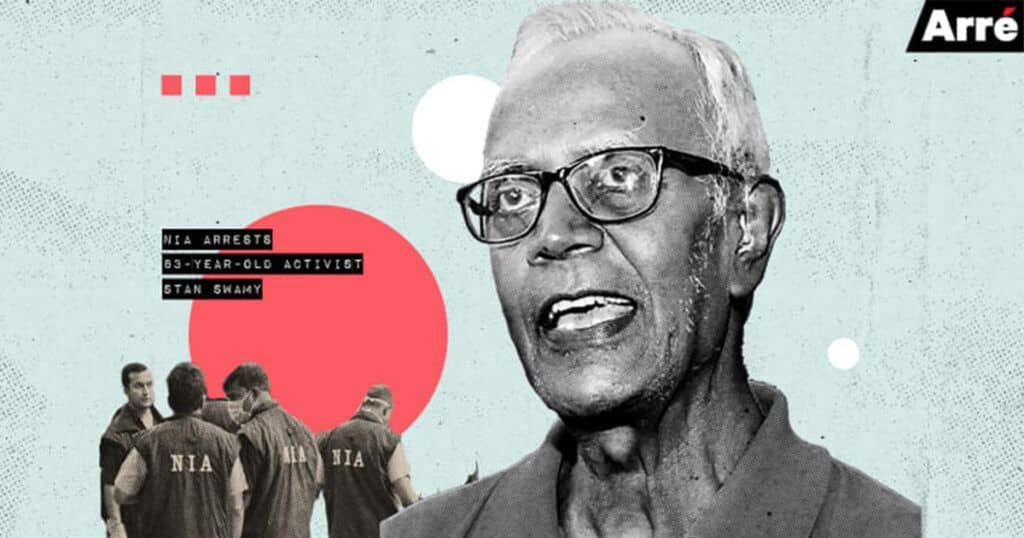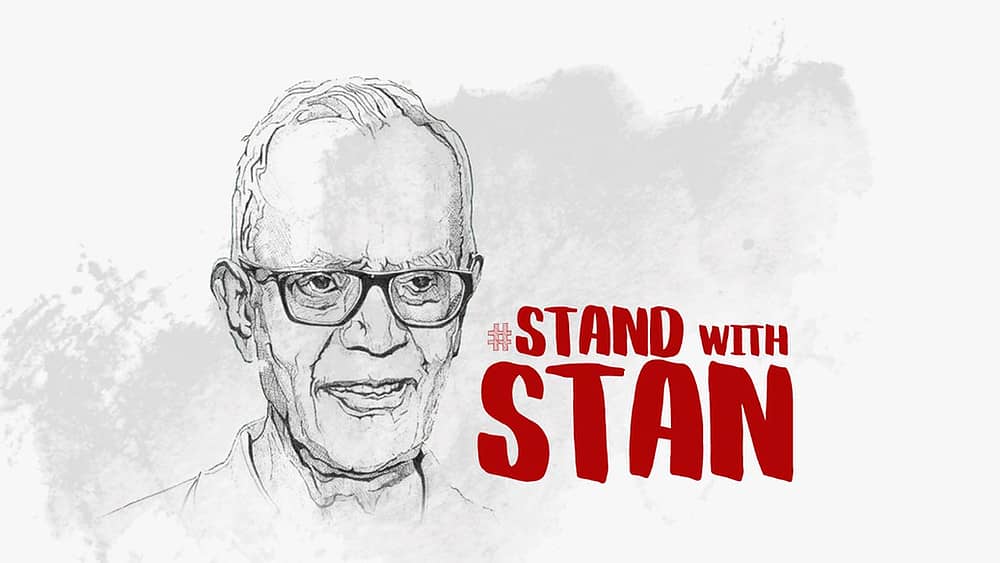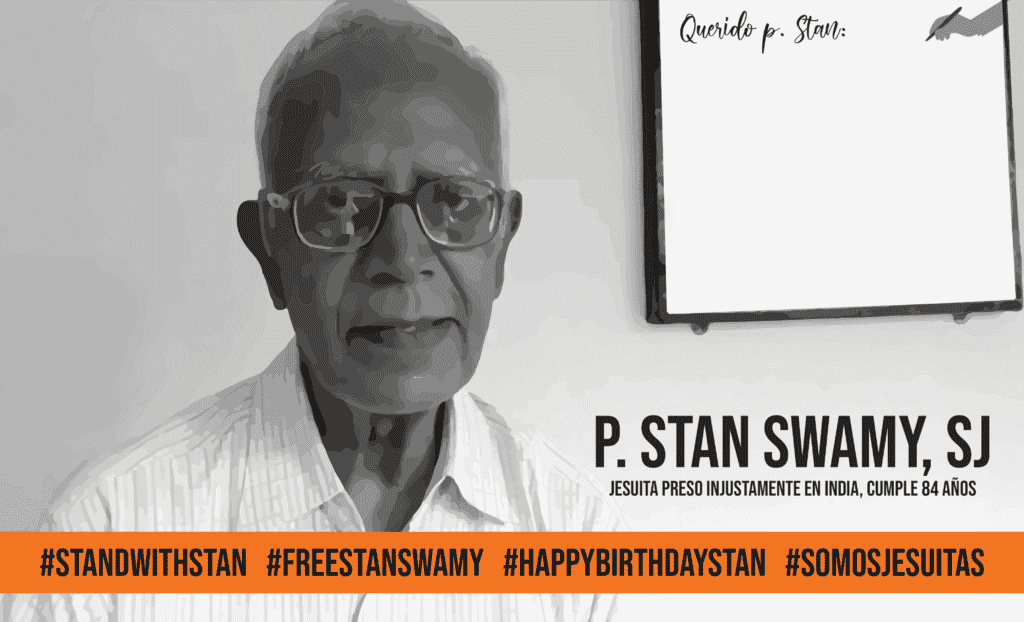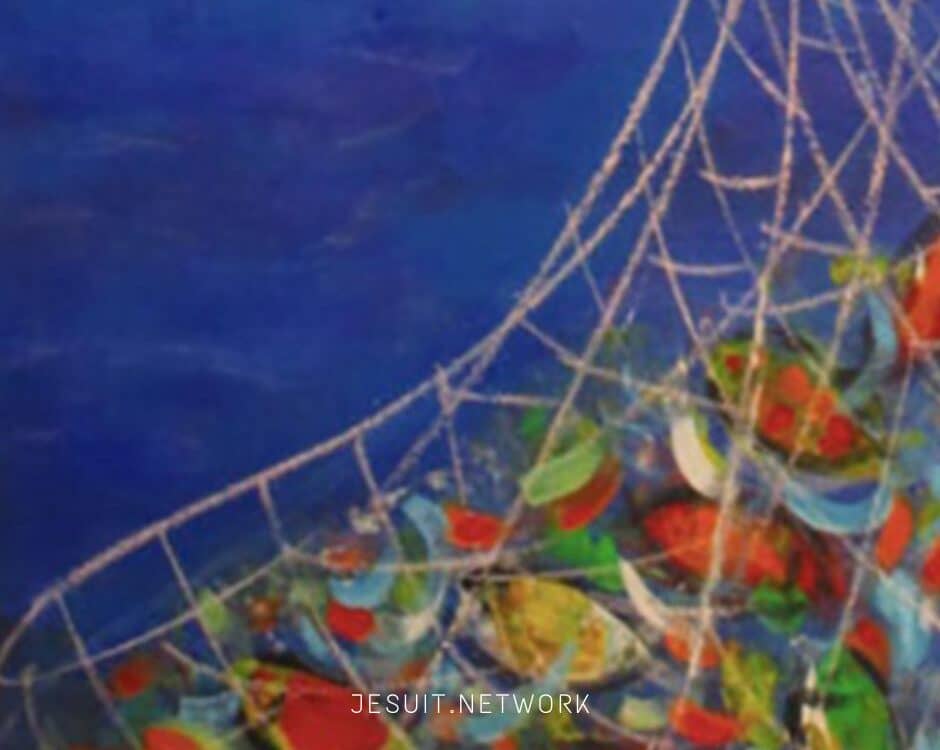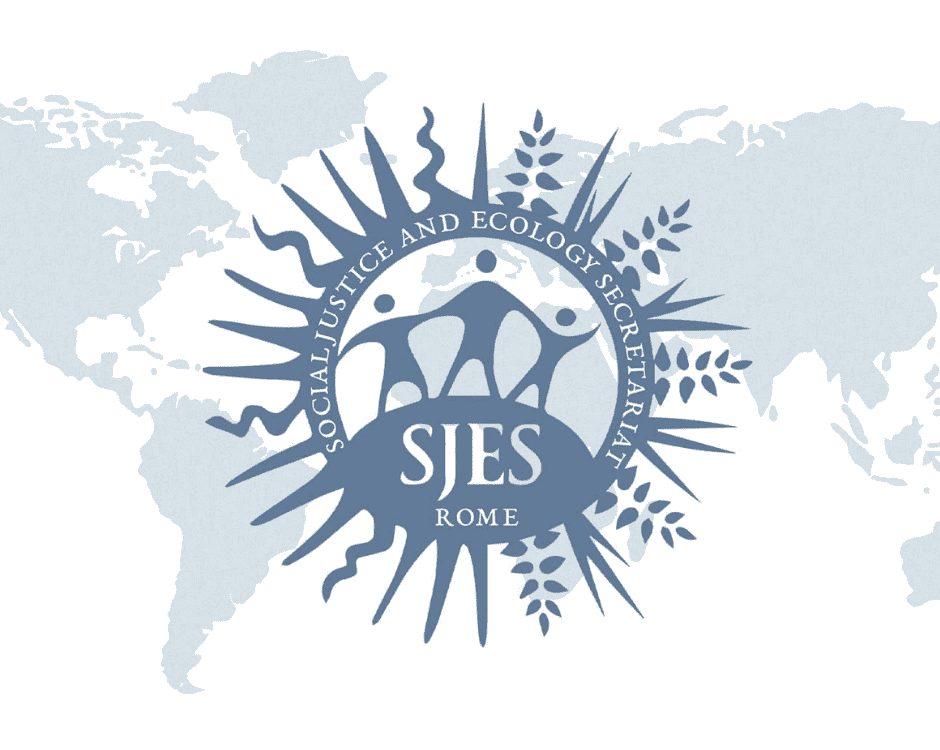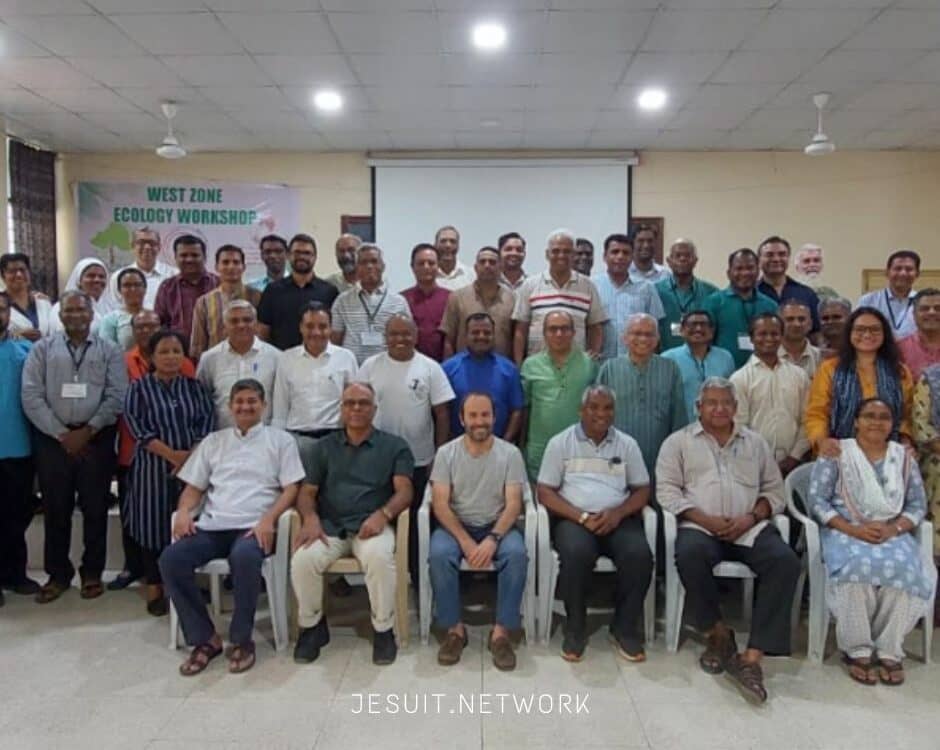This website uses cookies so that we can provide you with the best user experience possible. Cookie information is stored in your browser and performs functions such as recognising you when you return to our website and helping our team to understand which sections of the website you find most interesting and useful.
Lessons learnt from the case of Fr. Stan Swamy
Stan Swamy SJ was an 84-year-old Indian Jesuit who dedicated more than 40 years of his life to defending the rights of indigenous communities in Jharkhand and other neighboring states in India. On 8 October 2020, he was falsely accused of having links with Maoist extremist groups, of conspiring against the government, and of being present at the Bhima Khoregoan incident; and he was imprisoned. Fr Stan Swamy SJ denied all the allegations.
From October 2020 to May 2021, Fr Stan Swamy’s health deteriorated significantly because of his stay in prison. He was 84 years old, suffered from severe Parkinson, wore hearing aids and had undergone hernia surgery. His time in prison coincided with the Covid 19 pandemic which, in India, left more than 34 million cases and nearly half a million dead. Stan Swamy also contracted the disease.
His request for bail was denied three times. He passed away at Holy Family Hospital in Mumbai on 6 July 2021 in judicial custody. Family and friends of the Bhima Khoregoan accused have described Swamy’s death as “institutional murder“.
The campaign for Stan Swamy and human rights defenders in India
Following the arrest of Stan Swamy, the Society of Jesus in India mobilized in a campaign with various actions: mobilization, communication and public advocacy aimed at freeing Stan Swamy and those accused in the Bhima Khoregoan case. This campaign had to have an international component, hence the Social Justice and Ecology Secretariat (SJES) had a role to play, in close coordination with colleagues in India. SJES also sought the help of Jesuit Missions UK in coordinating the meetings of the international group that was set up. The Jesuit organisations that were part of the international group were: Canadian Jesuits International, CLC/CVC; CPAL, Irish Jesuit International, JESC, Jesuitas Comunicacao, Jesuitenwelt Austria, Jesuitenwelt Germany, Jesuitenwelt Switzerland, Jesuit Missions UK and Justice in Mining. Some others like Visibles, Radio Ecca o Jesuit Network help to continuously spread the main messages and campaign claims.
Some of the main actions and milestones:
- Major mobilization in India and internationally, with position papers, letters and advocacy actions at national and international level.
- There have been numerous creative forms of protest: signature collections, songs, prayers, webinars, human chains, poems. Masses and prayers have been held in numerous places. Numerous letters to Indian embassies in various countries around the world, as well as protests and rallies in front of them.
- Numerous advocacy actions at various levels. Among others:
- United Nations: Press release of 20 October 2020 by High Commissioner for Human Rights Michelle Bachelet.
- On 3 November 2020, the Vice-Chair of the Working Group on Arbitrary Detention, and the Special Rapporteurs on the situation of human rights defenders and minorities issued a statement raising concerns about the arbitrary detention and harassment of Fr Stan Swamy in response to his peaceful human rights work.
- European Union: At the EU level (apart from several initiatives by parliamentarians and government officers in Canada, USA, UK, Germany, Austria, among others):
- Letter of 21 Members of the European Parliament, including the presidencies of the main political groups.
- Call for EU to take a stand and press India to immediately end human rights violations, signed by seven international human rights organisations.
- Information requested from the Government of India and actions from the EU office and representatives in India, as well as actions by the EU Special Envoy for Human Rights.
- Actions with national governments in different countries (Foreign Affairs, Human Rights and international offices) of Canada, various Latin American countries, the United States, the United Kingdom, Germany, Austria, Portugal, Spain, among others, as well as the Houses of Representatives (Congress, Senate) of the aforementioned countries.
- Rallies and protests in front of Indian Embassies in different countries (in 8 Latin American countries, United Kingdom, Germany, Spain, Canada, United States…).
- More than 1370 articles in India and nearly 200 articles in international media American Magazine, Avvenire, BBC, COPE, The Guardian, El País, the Tablet, Vatican News, among many others). Continuous impacts and appearances in media and websites of the Society of Jesus and the Church (websites of SJES, Jesuits Global, all the organisations participating in the group, as well as Alfa y Omega, Vatican News, Vida Nueva, Religión digital and others).
- Digital and social media campaigns.
- Specific milestones: Fr. Stan´s imprisonment date, International Human Rights Day, 100 days in prison, specific milestones based on events linked to the case such as when bail was denied or for other reasons, Fr Stan Swamy’s 84th birthday on 26 April, the EU-India human rights summit in Portugal in May, etc.
Many more actions and impacts are detailed on the Jesuit Conference of South Asia website.
Although the campaign has helped to raise awareness regarding Stan Swamy and human rights defenders and the erosion of democracy and rights in India and to initiate a global solidarity movement, it did not achieve its objective of getting Stan Swamy released on bail. Despite continued action and mobilization, Stan Swamy died in judicial custody and those imprisoned by BK remain in jail as of today. This fact forces us to reflect on what more can or should be done to achieve the intended objectives.
Conclusions and lessons learned
- Having a clear justice issue and speaking with a prophetic voice is extremely important for a campaign. In this case, there was a specific, concrete cause, a clear issue of the flagrant injustice of the imprisonment and degrading treatment of an elderly and sick Jesuit who had fought all his life for indigenous communities. We had also a clear objective: liberate him from prison to face the trial he himself wanted in order to prove his innocence. By positioning ourselves on Stan Swamy’s side, we also positioned ourselves on the side of the indigenous communities that he advocated and worked for. This, in addition to working together collaboratively, increased our sense of belonging to the apostolic body and the universal mission of faith, justice and reconciliation of the Society of Jesus.
- The very process of collaboration and networking, in which diverse organisations, identified and united to work for the same cause was a very important factor. It allowed us to carry out the same action in different parts of the world and to scale our impact by linking them together. It is worth noting that the process grew as the campaign proceeded. It suggests that any campaign can start small but with perseverance, it gathers momentum and draws in others.
- The need for institutional support as well as grassroots support. From the very beginning, the cause had statements at the highest level from the Jesuit government and the Church. There was also strong grassroots support in India, both at the level of the Jesuit conference and from thousands of individuals, institutions and networks in solidarity with Stan Swamy and the human right defenders, including indigenous or Adivasi communities. In addition, the movement was supported by students, institutions, human rights and civil society organisations around the world.
- Increased capacities in advocacy and communication that allowed us to reach many more contacts of political representatives and media, as well as more impact on social networks. Working together allowed us to increase our capacities and our contacts. The very act of coming together around this cause has created knowledge, enhanced skills and built capacity to advocate on other causes. There has to be a critical mass of “advocates or campaigners” within the network who can provide the leadership, resources and research to take it forward.
- Need for more sustained efforts and relationship building for advocacy and communication. Working with political representatives in advocacy is very laborious. Advocacy capacities and relations with political representatives, as well as with the media in Jesuit institutions and networks, need to be strengthened and anchored in the organisations.
- Local, national and global connections. Beginning of a global movement and sense of solidarity and justice. There was mutual enrichment and individual enrichment from working in relationship with a person like Stan Swamy, human rights defenders and Adivasi or indigenous communities in India. Sense of belonging and privilege to be able to meet and work with Stan Swamy and to be able to show solidarity with him and colleagues in India. He enriched our institutions.
Finally, Stan Swamy’s death in custody sparked a genuine movement of appreciation for his life and work in India and around the world, as well as outrage at the injustice done, a symptom of the very serious erosion of democracy in India today. Today actions continue to demand reparations for Stan’s memory, the investigation and release of BK human rights defenders and political prisoners, and the rejection of the draconian UAPA and other laws.
Original article published on Cristianisme y Justicia. Illustration by Uday Mohite

